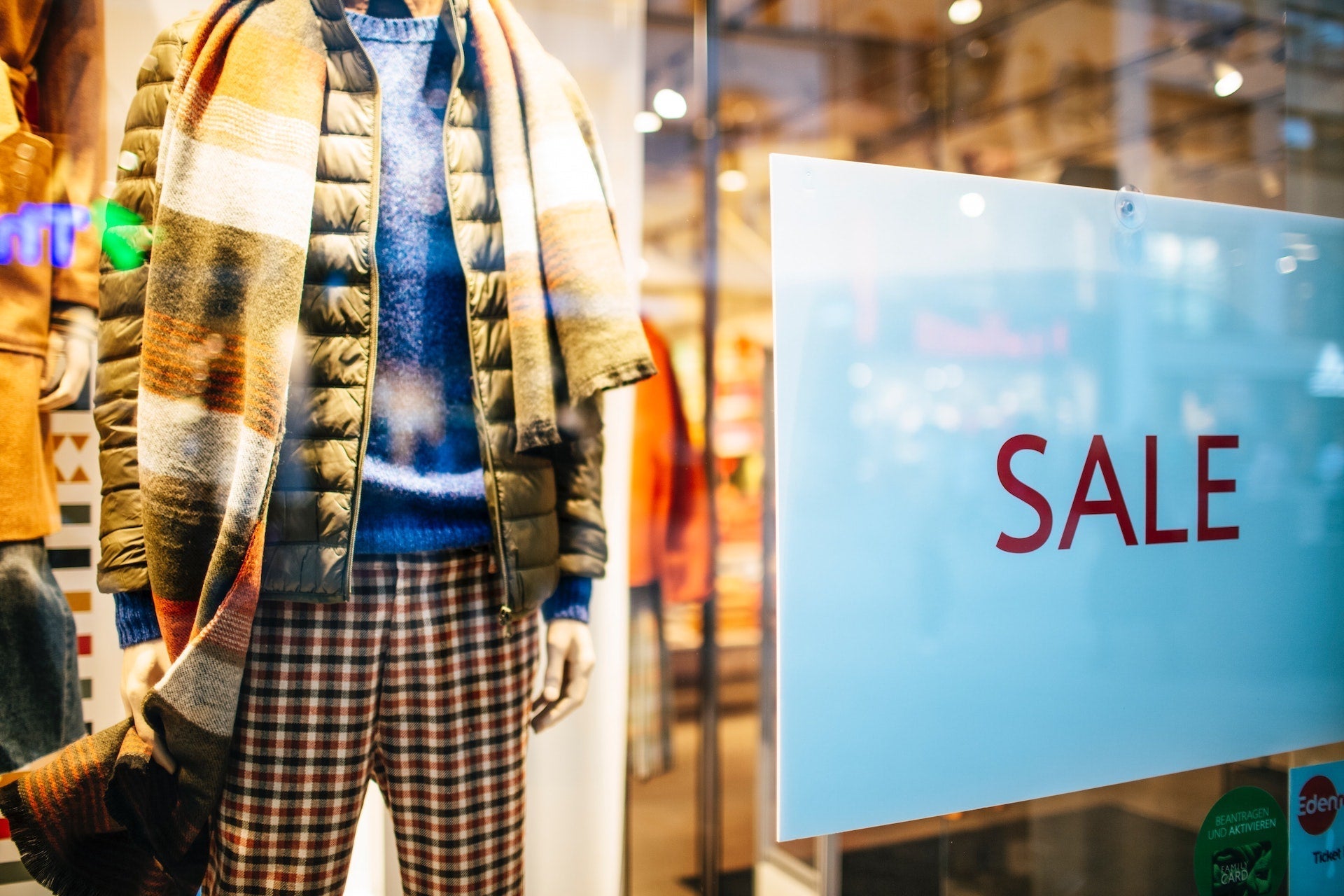Here’s a round-up of some of the finest sustainable fashion stories that hit the news in March…
First, a quick infographic summary:

Californian textile producers liable for recycling
In California, legislation has been introduced to require producers of clothing to implement state-wide collection and recycling.
This will be enacted under bill SB 707, which, once passed, will establish an extended producer responsibility (EPR) program. If you look at the detail, this means producers will be required to repair or recycle textiles that include: apparel, accessories, handbags, backpacks, draperies, shower curtains, furnishings, upholstery, bedding, towels, napkins and tablecloths. Pretty much any textile you can shake a stick at.
It’s not quite a first. California has already implemented other effective EPR programs that reduce environmental waste, and the state plans to do the same for the textile industry. Here at POMP, we put a lot of faith in the circular economy and it’s great to see laws like this propelling circularity forwards.
Clothing made from carbon emissions
Next, something else from California. Californian start-up Rubi, founded by twin sisters Neeka and Leila Mashouf, produces net zero textiles by using carbon-hungry enzymes to “eat” the carbon emissions from the waste streams of manufacturing facilities. The CO2 is converted into cellulose which is then used to create lyocell, which can in turn be used to make clothing.
Does that sound abstract? Here’s a little more about it works:

It’s amazing in theory. But the big news is that Rubi has just secured $8.7 million in funding. This is thanks to Talis Capital, alongside Patagonia’s Tin Shed Ventures, H&M Group, Collaborative Fund, and Necessary Ventures. Their now total funding of $13.5 million should help Rubi take more of their pioneering textiles to market.
Ganni, Reformation, H&M, Patagonia, and Nuuly have already signed up to Rubi’s pilot project where the clothing will likely show up in limited edition collections. And given the earlier news about AllBirds’ new sneakers, we wouldn’t be surprised if they sign up at some point too.
Allbirds creates the first net zero shoes, without offsets
It’s not uncommon to see carbon neutral clothing these days. But it is something extraordinary when that clothing reaches net zero emissions without offsets.
That’s what Allbirds claim that their new M0.0NSHOT sneakers can do. The shoes are made from materials that are carbon negative - thus negating the impact of any emissions in making them. No need for any spurious offsetting.
So what are those ingenious materials? Well, we have a sugarcane based foam, regeneratively farmed merino wool, and a bioplastic that is somehow made from sheep burps. Together, these do the magic.
 Photo credit: courtesy of Allbirds
Photo credit: courtesy of Allbirds
The bad news is that you’re going to have to wait a while to get them. Or even see what they look like in their full glory. The sneakers have just been announced but won’t be ‘revealed’ until July this year. Then, they’ll finally be in shops in spring 2024.
We hope it’s all as impactful as it sounds and they won’t be priced off of the feet of most folk.
Another step for sustainability in football
Football is widely considered to be the Beautiful Game but when it comes to sustainability, evidence of this is rather limited. So when we hear of something good, we get all excited. A new upcycling brand, re(boot), has developed a range of athletic wear using official Inter Miami CF player-worn jerseys and training tops.
This inaugural range was modelled by the U-12 Academy “to inspire the next generation of athletes to be more eco-conscious and encourage dialogue about sustainability from a young age”. We’ve always wondered what happens to old training gear and thanks to this collaboration between Inter Miami (a club part-owned by David Beckham) and re(boot), we now know that some people are in fact recycling clothes.
Swap don’t shop
In our sustainable fashion trends to watch out for in 2023 article, we talked about how we expect sustainable fashion brands to try to lower prices to appeal to customers struggling during the cost-of-living crisis in the UK. This is not likely to reach all parts of the market such as those where perhaps charity shops would fill the void. It’s therefore interesting to see an alternative model to prosper. Jess Brunt, who lives in Peckham, set up a clothes-swapping business, Verte, in 2019 to make it cheap and sustainable for people to update their wardrobes. It seems that part of the motivation for launching this was that in Jess’s experience, charity shops were so overrun they were unable to take her clothes.
The way it works is that customers pay for entry (£10 for advance tickets or £15 on the day) to a clothes-swapping event. They are able to give clothes away for which they receive tokens to “spend” on somebody else’s clothes. Any unused tokens carry over to the next event.
Interesting, no? Please let us know in the comments if you’ve been to any of these events!
Drapers Den 2023
At the Drapers Sustainable Fashion Conference there was a pitching competition for sustainability-focused start-ups. The competition was judged by Christopher Raeburn, (creative director, Ræburn; collaborator-at-large, Timberland), Touker Suleyman (founder and owner, Hawes & Curtis, Ghost, Low Profile Holdings) and Natalie Binns (sustainable fashion consultant).
There were only four businesses that pitched: Hylo, Give Your Best, Kidswear Collective and Reflo. The businesses were judged on proof of concept, innovation, commerciality, opportunity to scale and change making potential. Ultimately, Reflo, a business that manufactures clothing from advanced technical fabrics woven from recycled waste, was crowned the winner. We may have to consider adding Reflo to our Best Recycled Clothing Brands for 2023 article.
Our stream of sustainable fashion news has run dry for this month. But we’ll be back next month. See you soon!




